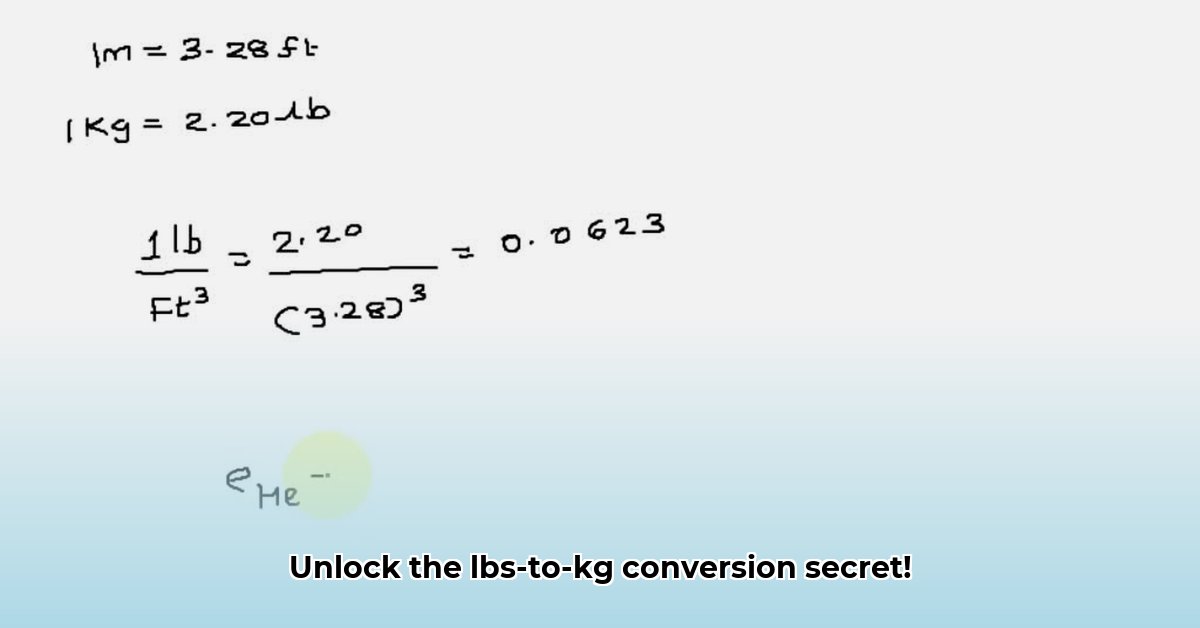
Ever wondered how many kilograms are in 3.28 pounds? While a quick calculation might seem straightforward, the history of the pound adds unexpected complexity. This guide provides a precise conversion, exploring the nuances of different pound definitions and their impact on accuracy. Whether you're a scientist, historian, or just curious, understanding these details ensures you're getting the conversion right every time.
Standard Conversion: A Simple Approach
The most common pound used today is the avoirdupois pound. One avoirdupois pound equals approximately 0.45359237 kilograms. To convert 3.28 pounds to kilograms, we multiply:
3.28 lbs * 0.45359237 kg/lb ≈ 1.488 kg
For most purposes, rounding to three decimal places (1.488 kg) is sufficient. However, the accuracy of this result depends on the precision of your initial measurement.
Precision Matters: Significant Figures
In scientific and engineering contexts, understanding significant figures is vital. Significant figures indicate the precision of a measurement. Our original 3.28 lbs has three significant figures. To maintain accuracy, our calculations shouldn't introduce more or fewer significant figures than the original measurement. This ensures our results accurately reflect the precision of our initial data.
Historical Context: The Evolving Definition of the Pound
The definition of a "pound" has evolved over time. Different types of pounds have existed, each with its own conversion factor to kilograms. This historical variability is critical when dealing with older measurements or specialized fields.
| Pound Type | Conversion Factor (kg/lb) | 3.28 lbs in kg (approx.) |
|---|---|---|
| Avoirdupois | 0.45359237 | 1.488 |
| Troy | 0.3732417 | 1.222 |
| Apothecaries' | 0.3732417 | 1.222 |
Notice the significant differences? The conversion of 3.28 lbs depends entirely on the type of pound we're using.
Real-World Applications: Where Precision Counts
The historical variations in pound definitions aren't just a historical curiosity. They have real-world implications:
- Precious Metals: In precious metals trading, the Troy pound is used. Inaccurate conversions can lead to significant financial losses.
- Historical Records: Older documents often use outdated pound definitions. Understanding the correct definition is crucial for accurately interpreting historical data.
- Scientific Research and Engineering: Accurate weight measurements are essential for safety and reliability in many scientific and engineering applications.
Advanced Considerations: Refining the Conversion
For those seeking higher precision, several factors warrant consideration:
- Uncertainty in Measurements: All measurements have inherent uncertainty. This uncertainty propagates through the conversion process, impacting the final result's reliability.
- Advanced Tools: Specialized software and calculators provide more precise conversions and can handle various pound definitions.
Conclusion: Choosing the Right Pound
Always clarify which type of pound is being used before performing a conversion. While the avoirdupois pound suffices for many daily applications, accuracy is paramount in contexts like finance, science, and history. Understanding the historical context ensures precise and reliable weight conversions.
Resources
NIST website – A leading source for physical measurement standards and conversion information.